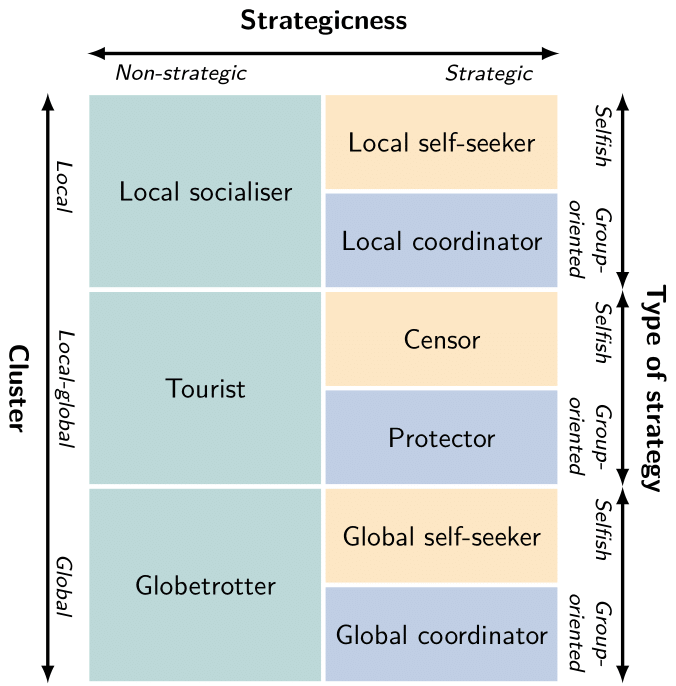A new theory of social roles in networks
Ramona Roller and Frank Schweitzer
socarxiv (2021)
Abstract
Theories of social roles neglect social clusters. However, accounting for clusters is essential because individuals in social networks (e.g., social media) cannot oversee the whole network and have to restrict their interactions to local substructures. Roles which do not account for this cluster formation may lead to misinterpretations of the network’s dynamics and functions. This article proposes a theory of social roles in large social networks. We group roles detected in previous empirical studies into meta-roles and embed them along two dimensions, strategicness describing whether the person works towards a particular goal or not, and the type of strategy (selfish or group-oriented). We extend this framework by adding a cluster dimension describing to what extent a person’s interactions are embedded locally or globally in the network. We argue that empirical role analyses would benefit from our theory by systematically accounting for complex structures specific to the network perspective, generalising empirical findings beyond individual case studies, and understanding human interactions better.

